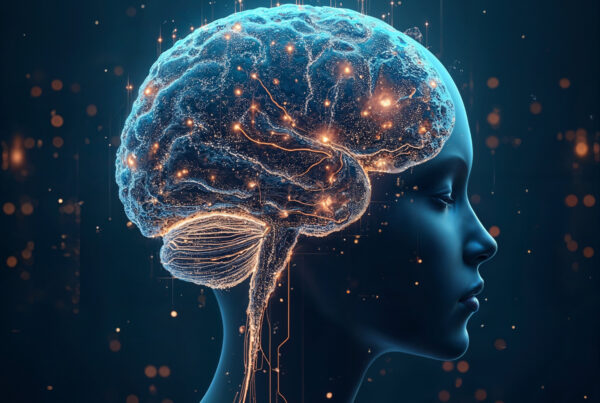In the clinical study Efficacy of ketamine therapy in the treatment of depression by Mandal, Sinha, and Goyal (2019), researchers evaluated the impact of ketamine therapy in treating severe depression among a unique group: drug-free, treatment-naïve male patients in India. The results were clear and compelling—ketamine showed rapid and sustained antidepressant and anxiolytic effects, beginning within the first hour and extending up to a month post-treatment.
Major depressive disorder (MDD) remains one of the most burdensome mental illnesses globally, especially in regions where psychiatric care may be less accessible or stigmatized. The emergence of ketamine as a rapid-acting intervention has reignited hope for patients who have not responded to traditional therapies. This study adds valuable insight to the growing body of evidence supporting ketamine’s utility in clinical psychiatry, particularly in severe and refractory cases.
Study Design and Participant Profile
The trial enrolled 25 male patients with severe depression. All participants were drug-free and had no prior treatment history with psychiatric medications. Importantly, the study excluded individuals with psychotic disorders, neurological conditions, cardiological issues, or substance abuse histories, ensuring a tightly defined cohort for clear outcome measurement.
Each patient received an intravenous bolus of 0.5 mg/kg ketamine hydrochloride, a subanesthetic dose, administered six times over two weeks. This dosing strategy reflects a growing clinical standard for maximizing therapeutic benefit while minimizing side effects.
Assessment Tools and Timeline
Evaluations were conducted at multiple time points:
- Baseline (pre-infusion)
- 1 hour after first dose
- Throughout the 2-week treatment window
- 1 month post-final infusion
Researchers used validated psychiatric instruments to measure outcomes, including:
- Hamilton Depression Rating Scale (HDRS)
- Hamilton Anxiety Scale (HAM-A)
- Clinical Global Impression (CGI) scale
These tools enabled both symptom severity and functional improvement tracking over time.
Key Findings: Rapid Onset and Sustained Impact
Within just one hour of the first infusion, participants experienced significant reductions in depression and anxiety symptoms. While the severity of illness as measured by the CGI did not show immediate change, improvements became more pronounced with continued administration:
- At 2 weeks, participants showed marked reduction in both depression and anxiety scores.
- By 1 month post-treatment, effects remained stable or further improved.
This durability suggests that repeated ketamine infusions may promote not only rapid but sustained neuroadaptive changes linked to mood stabilization.
Safety and Tolerability
The ketamine infusions were well-tolerated, with no serious adverse events. Some patients experienced transient side effects such as mild dissociation or dizziness, but these symptoms subsided within one hour and did not lead to treatment discontinuation.
Notably, dissociation—a frequently reported side effect—may not be merely incidental. Findings from Luckenbaugh et al. (2014) suggest that greater dissociative experiences during infusion may predict a more robust and longer-lasting antidepressant effect. This relationship underscores the need for further investigation into dissociation as a potential biomarker for treatment responsiveness.
Clinical Implications
This study carries several important clinical messages:
- Rapid intervention: Ketamine acts faster than traditional antidepressants, offering hope for patients in acute distress.
- Repeated dosing matters: Sustained relief appears to depend on multiple infusions, as single-dose effects may be transient.
- Scalability in resource-limited settings: The simple IV bolus protocol used in this study could be replicated in many clinical environments, making ketamine accessible beyond high-tech urban centers.
Limitations and Future Research
Despite its strengths, the study had limitations:
- Small sample size (N=25) and male-only design limit generalizability.
- Lack of control group or blinding may introduce bias.
- Long-term outcomes beyond one month remain unknown.
Future investigations should include diverse populations, control comparisons, and longer follow-up to evaluate relapse rates and optimal maintenance strategies.
Conclusion
The study Efficacy of ketamine therapy in the treatment of depression underscores ketamine’s unique value as a fast-acting, robust, and tolerable therapy for severe depression. In a carefully selected patient group, significant improvements in mood and anxiety were observed within one hour of administration and were sustained for at least one month.
Furthermore, emerging data suggest that the intensity of dissociative effects during treatment may correlate with greater antidepressant efficacy, opening new avenues for individualized treatment protocols.
These findings bolster the case for expanding ketamine-based treatment in psychiatric care, especially in cases where traditional antidepressants have failed.
References
- Mandal S, Sinha VK, Goyal N. Efficacy of ketamine therapy in the treatment of depression. Indian J Psychiatry. 2019;61(5):480–485. https://doi.org/10.4103/psychiatry.IndianJPsychiatry_484_18
- Krystal JH, Abdallah CG, Sanacora G, et al. Ketamine: A Paradigm Shift for Depression Research and Treatment. Neuron. 2019;101(5):774–778. https://doi.org/10.1016/j.neuron.2019.02.005
- Berman RM, Cappiello A, Anand A, et al. Antidepressant effects of ketamine in depressed patients. Biol Psychiatry. 2000;47(4):351–354. https://doi.org/10.1016/S0006-3223(99)00230-9
- Zarate CA, Singh JB, Carlson PJ, et al. A randomized trial of an N-methyl-D-aspartate antagonist in treatment-resistant major depression. Arch Gen Psychiatry. 2006;63(8):856–864. https://doi.org/10.1001/archpsyc.63.8.856
- Murrough JW, Iosifescu DV, Chang LC, et al. Antidepressant efficacy of ketamine in treatment-resistant major depression: a two-site randomized controlled trial. Am J Psychiatry. 2013;170(10):1134–1142. https://doi.org/10.1176/appi.ajp.2013.13030392
Luckenbaugh DA, Niciu MJ, Ionescu DF, et al. Do the dissociative side effects of ketamine mediate its antidepressant effects? J Affect Disord. 2014;159:56–61. https://doi.org/10.1016/j.jad.2014.02.017




